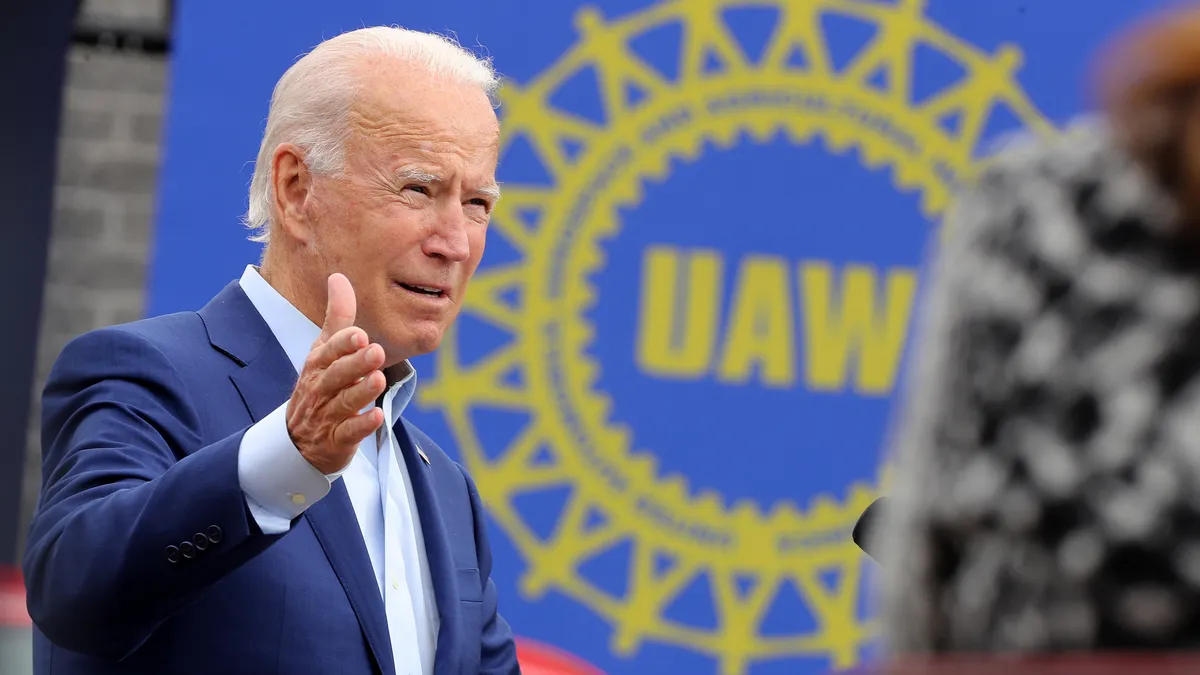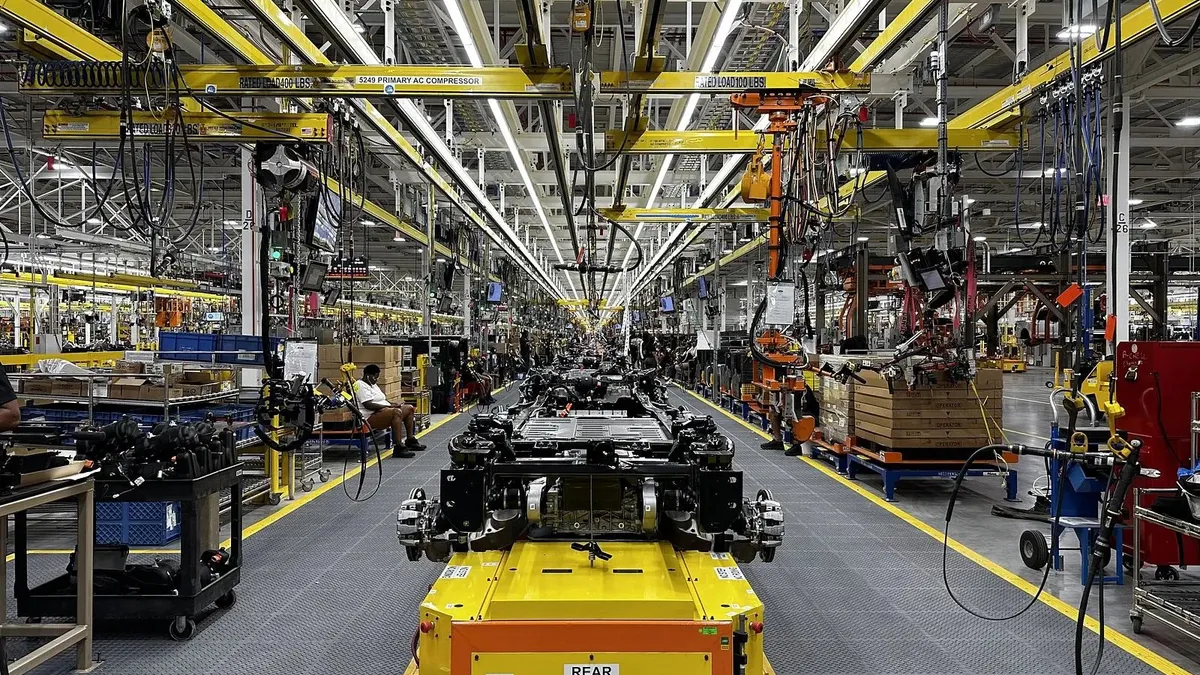President Biden released a statement on Monday urging the Big Three automakers and United Auto Workers Union to reach a fair deal to avoid a costly strike that would essentially shut down the U.S. assembly plants of General Motors, Ford and Stellantis.
The current 4-year UAW contracts for the three automakers expire Sept. 14.
The UAW represents roughly 115,000 workers at the three automakers, according to the union’s website. In total, the current UAW labor agreements cover around 150,000 auto industry workers in the U.S., according to Reuters.
“As the Big Three auto companies and the United Auto Workers come together — one month before the expiration of their contract — to negotiate a new agreement, I want to be clear about where I stand. I’m asking all sides to work together to forge a fair agreement,” Biden said.
A strike could result in billions in combined losses for GM, Ford and Stellantis, the parent company of Jeep, Dodge and Chrysler. In 2019, GM lost nearly $3 billion after a 40-day strike shut down the automaker’s U.S. factories. It was the longest UAW work stoppage since 1970.
The latest UAW contract proposal calls for a 20% upfront wage increase to help autoworkers deal with inflation. If approved, this pay hike would be one of the largest in decades, followed by a 5% annual pay raise each September through 2027, meaning that UAW workers will see wage increases of nearly 46% by then.
The UAW argues that auto industry wages have not kept up with inflation while the three automakers rake in billions in profits. According to the UAW, the starting wage for auto workers was $19.60 per hour in 2007, but it's currently $18.04 per hour under the current contract.
“The UAW helped create the American middle class and as we move forward in this transition to new technologies, the UAW deserves a contract that sustains the middle class,” Biden said.
GM, the largest U.S. automaker, criticized the latest UAW contract proposal. The automaker said in a statement on Aug. 3 that the pay hike “would threaten our ability to do what’s right for the long-term benefit of the team.”
The contract negotiations come as the three automakers invest billions of dollars in zero-emission electric vehicles and battery joint ventures.
Some of the automakers’ joint venture battery factories are not covered by current labor agreements with the UAW, including the Ohio factory of Ultium Cells LLC, the joint venture between GM and LG Energy Solution. The two companies invested $2.3 billion to build the EV battery factory in Ohio.
In a letter to Ohio Sen. Sherrod Brown dated July 27, Ultium Cells LLC wrote that it “does not see a viable legal or practical path to place Ultium Cells-Ohio into the General Motors National Agreement.”
In April, UAW President Shawn Fain said there is "no excuse" for Detroit's automakers to set up EV operations and ventures that are not unionized.
“The need to transition to a clean energy economy should provide a win‑win opportunity for auto companies and unionized workers,” Biden said.
Contract negotiations between the big-three automakers and UAW are ongoing.














